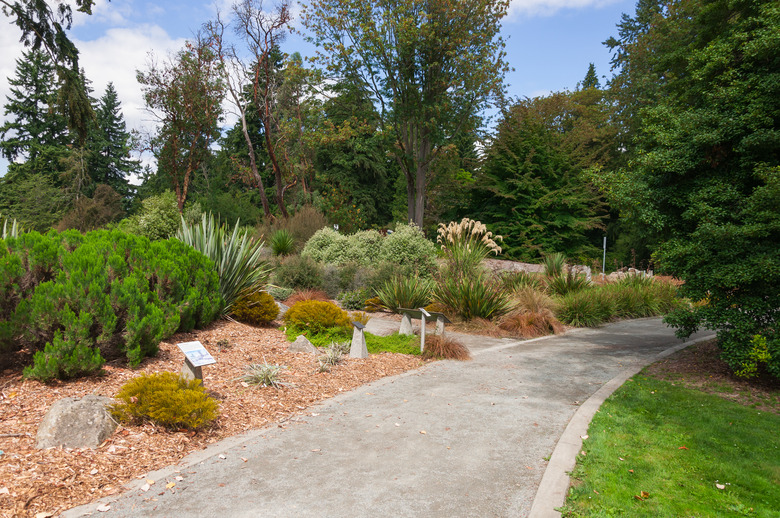Hemlock Vs. Cedar Mulch
When it comes to landscaping, there's a whole lot of work that never ends. That's why gardeners use mulch and other materials to make their lives simpler. Putting mulch throughout a garden bed is far more than just aesthetics, and there's more to consider than just how much. Choosing between various types of wood for mulch can affect your garden's outcome, so what are the differences between hemlock and cedar mulches?
Why Should Gardeners Use Mulch?
Why Should Gardeners Use Mulch?
Mulch includes things like manure, straw, gravel and stone, but speaking specifically of wood mulch in the form of hemlock and cedar, there are a few things wood mulch accomplishes. Sure, it looks pretty by adding a pop of color and lots of texture to the garden, but it also slows weed growth.
Mulch is also constantly improving soil quality because it will enrich the soil as it decomposes. It's helpful for climate regulation because the mulch shelters the plant roots from sudden fluctuation in temperatures, as well as extremes with hot and cold days. Furthermore, it's super for limiting evaporation. You won't lose as much water as quickly, helping to improve water absorption and retention for both the soil and your plants.
Sometimes, mulch isn't the best solution, though. Wood chip mulch can blow away or decompose slowly, both being somewhat problematic depending on your garden, but shredded mulch avoids both of those issues. Wood mulch isn't recommended for fruit trees and veggies that require a lot of nitrogen, for instance, unless you put a nutrient-rich mulch like composted manure under it first. If you're uncertain of what to use for your garden and climate, a local nursery may have great specific advice.
Qualities of Hemlock Mulch
Qualities of Hemlock Mulch
Hemlock mulch comes from the coniferous tree, not "poison hemlock," which is an herbaceous perennial plant, so you don't have to worry about toxicity when choosing this wood. It's anything from orange to red to burgundy in color, depending on the age of the wood when harvested and also what processes they use to age the mulch itself. Thicker pieces of hemlock break down more slowly and can leach nitrogen from the soil. For this reason, it's recommended more for ornamental gardens than for veggie and fruit patches. LawnStar reports that hemlock's high tannin content makes it great at keeping pests away.
Landscapers Love Cedar Mulch
Landscapers Love Cedar Mulch
Cedar mulch interlocks in a way, which makes it better for windy areas as it won't blow off. But the top reason that a lot of landscapers love cedar is that it's a natural pest repellent — everything from termites to slugs will avoid cedar mulch. If termites are a problem in homes in your area, having cedar mulch around the house might ward them off. But while it deters insects, it protects the earthworms in your soil, which in turn help to aerate and fertilize your garden.
Landscaping experts love how cedar mulch also has a nifty naturally occurring chemical called thujaplicin, an oil found in the Western red cedar, and it's an antifungal that prevents leaf mold and other bacteria from taking hold in your plants or their roots. It can make plants seem brighter and leafier.
What About Dogs and Mulch?
What About Dogs and Mulch?
Anyone who has had a dog knows they're a little nuts about eating stuff, so that should always be a concern. Both hemlock and cedar are approved by the ASPCA as being safe for your pooch, but for they'll-eat-anything dogs, go with cedar. Why? There's a natural scent to cedar that's off-putting for canines. It can't hurt for dog owners to review the risks and diagnosis of mulch toxicity, choking and blockages.
Buying Mulch: Tips
Buying Mulch: Tips
Colored mulches are generally harmless dyes, but it's best to be sure and investigate. Buying mulch in bulk can be much more affordable. Wood chips may last longer, but eventually, you'll have to add more or replace your mulch regardless of what you use. Shredded mulch can help your garden grow faster but needs replacing more often.
